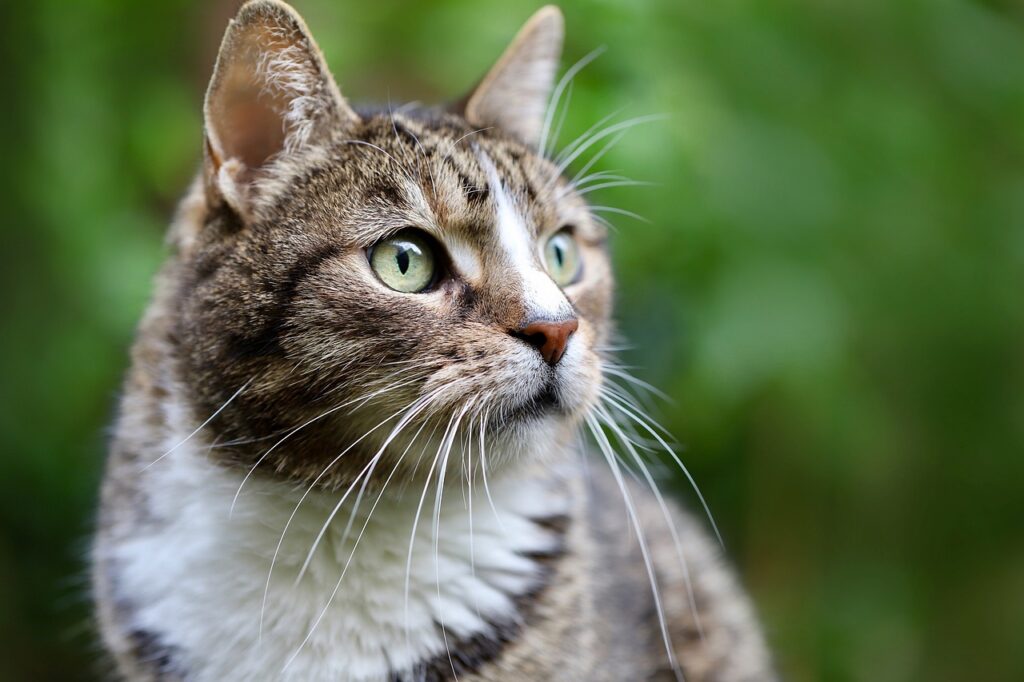Can Cats Eat Pears? – Yes, They Can
Cats can indeed nibble on pears, but it should be a treat rather than a staple in their diet. Pears are non-toxic to cats and can offer some hydration and fiber. However, the key is moderation. Pears contain natural sugars that aren’t necessary for a cat’s diet, and too much can lead to stomach upset or weight gain. Make sure to remove the seeds and core before offering a small piece to your feline friend.
Can Kittens Eat Pears?
No, They Shouldn’t. Kittens have sensitive digestive systems and are undergoing critical growth and development stages. Their diet should be strictly controlled with high-quality kitten food that provides all the necessary nutrients for healthy growth. Introducing pears or other human foods can disrupt their nutritional balance and potentially cause gastrointestinal troubles.
Things to consider when feeding pears to kittens?
While it’s best to avoid giving pears to kittens, if they do have a tiny piece, it’s vital to monitor them for any adverse reactions. Remember, their primary diet should be a veterinarian-approved kitten formula. Solid foods like pears could be a choking hazard and are not recommended for young kittens.
Nutritional Benefits of Pears for Cats – Why Pears are Good for Cats?
Hydration
Pears are made up mostly of water, which can aid in keeping your cat hydrated, especially if they tend to shun their water dish.
Fiber
The flesh of a pear provides fiber, which can help with digestion and bowel health in cats when fed in small amounts.
Vitamins
Pears contain vitamins C and K, as well as some calcium and potassium. While cats produce vitamin C naturally, these added nutrients can still benefit their overall health.
Antioxidants
Pears possess antioxidants which are beneficial in fighting against free radicals, potentially reducing the risk of certain diseases.
Low in Calories
Pears are relatively low in calories, which can make them a healthier treat option compared to processed cat treats that may be high in fat or additives.
Potential Allergies: Can Cats Be Allergic to Pears?
It’s rare, but cats can be allergic to pears. Monitor your cat after introducing any new food, including pears, for any signs of an allergic reaction.
Symptoms of Pear Allergies in Cats
- Itching or Swelling: Keep an eye out for excessive scratching or swollen areas, as these could indicate an allergy.
- Gastrointestinal Upset: Watch for symptoms like vomiting or diarrhea, which could suggest a food intolerance or allergy.
- Respiratory Issues: If a cat is allergic, it might have difficulty breathing or exhibit wheezing or coughing after eating pears.
What to Do If Your Cat Shows Symptoms?
- Immediate Veterinary Care: Contact your veterinarian if your cat shows any signs of an allergic reaction after eating pears.
- Elimination Diet: Your vet may recommend an elimination diet to rule out other food allergies or sensitivities.
- Observation: Monitor your cat closely after they eat pears to quickly identify any adverse reactions in the future.
Recommended Amount: How Much Pears Can a Cat Consume?
A small piece of pear, free of seeds and core, can be an occasional treat. Do not feed more than a couple of small bites per serving, and limit this treat to no more than once a week to prevent any negative health impacts.
Things to Consider When Feeding Pears to Cats
Always introduce new foods slowly and in small amounts to observe how your cat reacts. Avoid feeding them pear skin which can be hard to digest and make sure there’s no exposure to pear seeds, which contain trace amounts of cyanide.
How to Feed Pears to Cats: A Quick Guide
Feeding pears to cats can be a refreshing treat if done correctly. Remember to wash the fruit thoroughly, remove the core and seeds, and cut it into small, manageable pieces.
Pear Puree Treat
Blend a small piece of pear into a fine puree and freeze it in an ice cube tray for a cool, hydrating treat on a hot day.
Crispy Pear Chips
Thinly slice pear pieces and dehydrate them to make crispy pear chips. Ensure these are given in tiny amounts as they are more concentrated in sugar.
Mixed Fruit Medley
Create a small fruit salad with pear, melon, and blueberries. Serve sparingly and ensure all fruits are safe for feline consumption.
Conclusion
In conclusion, cats can eat pears in moderation. As obligate carnivores, their main diet should consist of high-quality cat food, but an occasional pear treat can provide added hydration and fiber. Always supervise your pet with new treats, offer pears in small amounts, and watch for any allergic reactions. With these precautions in mind, your cat can enjoy a little variety in its diet.
<!– Blog ends here —
>



